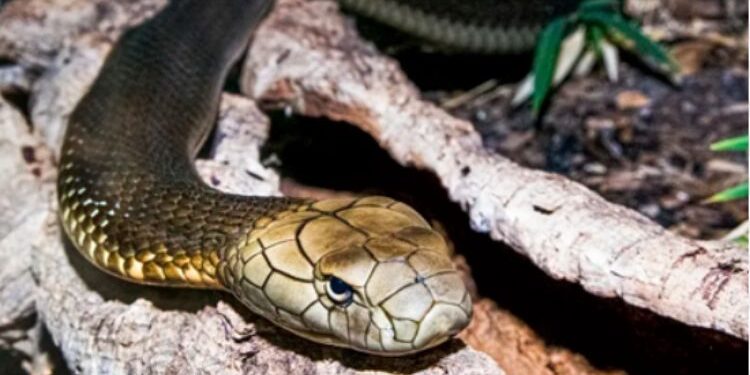Cobra snakes have long been a symbol of fear and fascination. With their mesmerizing hoods and deadly venom, they invoke awe and respect, making them one of the most captivating reptiles in the world. For reptile enthusiasts and collectors, the allure of owning a cobra is undeniable. However, before you rush to buy one, there are essential things to consider. From legality and safety concerns to proper care and housing, owning a cobra comes with significant responsibility. In this article, we will explore everything you need to know before buying a cobra snake, including where to find them, what types are available for sale, and how to ensure you can provide a proper home for this unique creature.
Understanding Cobras: The Basics
Cobras belong to the family Elapidae and are known for their iconic hood, which they flare when threatened. This defensive behavior, along with their potent venom, has made them infamous throughout history and across cultures. There are several species of cobras, with the most famous being the Indian cobra (Naja naja), the king cobra (Ophiophagus hannah), and the monocled cobra (Naja kaouthia).
Each species has different characteristics, including size, venom potency, and behavior. King cobras, for example, are the longest venomous snakes in the world and are capable of growing up to 18 feet long. On the other hand, the Indian cobra is much smaller but still highly venomous.
Where To Find Cobras For Sale
Cobra snakes for sale from a variety of sources, including pet stores, breeders, and specialized reptile dealers. However, it is crucial to make sure you are purchasing from a reputable source. Buying a cobra from an untrustworthy seller can lead to ethical issues, health risks for the snake, and legal troubles for you.
Licensed Breeders: Always buy from licensed breeders who follow legal guidelines and ethical practices. Reputable breeders are often the best source for healthy, captive-bred cobras, which are more manageable than wild-caught specimens.
Pet Stores: Some pet stores may offer cobras for sale, but it is essential to ensure that the store is knowledgeable about the proper care of venomous snakes. Not all pet stores are equipped to deal with the complexities of cobra care.
Online Marketplaces: While online marketplaces can be a good source for rare or exotic snakes, always verify the seller’s credentials. Look for reviews, certifications, and any other information that shows they are trustworthy. Be cautious when purchasing venomous animals online, as shipping such creatures can be risky.
Reptile Expos and Shows: Reptile expos and shows can also be an excellent place to find cobras for sale. These events often have a wide range of reptiles available, including exotic and venomous species. Again, ensure that any seller you purchase from is reputable and licensed.
Legal Considerations Before Purchasing A Cobra
Before acquiring a cobra, it is critical to check the legal requirements in your area. The sale, ownership, and transportation of venomous snakes like cobras are heavily regulated in many countries and regions due to their potential dangers.
Permits and Licensing: Many countries require individuals to obtain specific permits to own venomous snakes. In some places, owning a cobra may be illegal without a license, while other regions may have specific restrictions or bans on particular species. Always check with local authorities to ensure you comply with all legal requirements.
Quarantine and Transportation Laws: If you are purchasing a cobra from out of state or country, make sure to follow all quarantine and transportation laws. Some regions require reptiles to be quarantined for a period upon arrival to prevent the spread of disease.
Insurance: Some snake owners may also be required to have liability insurance in case of an accident involving their pet. This is particularly relevant if you live in an area where venomous snake ownership is allowed.
Housing And Care For A Cobra
Owning a cobra requires specialized care to ensure the snake remains healthy and safe. Unlike more common pets, cobras are not suitable for novice reptile owners. Before purchasing one, ensure you can provide the following:
Enclosure: Cobras need a large, secure enclosure to thrive. The size of the enclosure will depend on the species of cobra you are buying, but it should be spacious enough for the snake to move around and exercise. A secure, escape-proof enclosure is essential, as cobras can be quite agile and determined.
Temperature and Humidity: Like all reptiles, cobras are ectothermic, meaning they rely on external sources of heat to regulate their body temperature. The enclosure must have a heating element to provide a temperature gradient, with a warm side and a cooler side. Additionally, the humidity levels should be kept within a range appropriate for the species.
Feeding: Cobras are carnivorous and require a diet of whole prey items, such as rodents or other small animals. The size and frequency of the prey will depend on the age and species of the cobra. You should never attempt to feed a cobra live prey unless necessary, as this can lead to injury or stress for the snake.
Handling: Cobras are not typical pets to handle regularly. They are highly venomous and should only be handled by experienced and trained individuals. If you plan to handle your cobra, it is crucial to learn proper techniques and always prioritize safety.
Health And Veterinary Care
Cobras, like all animals, require regular veterinary care to ensure their health. It is important to find a veterinarian who is experienced with venomous reptiles, as their care is more specialized than that of non-venomous snakes. Regular check-ups can help prevent disease, monitor for parasites, and ensure the overall well-being of your cobra.
Wrapping It Up
Owning a cobra snake is a significant responsibility that should not be taken lightly. While these fascinating reptiles make captivating pets for experienced herpetologists, they come with challenges in terms of care, housing, safety, and legality. Before purchasing a cobra, do thorough research on the species you’re interested in, ensure you comply with all legal requirements, and make sure you can provide the appropriate care to keep your cobra healthy and safe. Owning a cobra is not for everyone, but for those who are willing to meet the challenges, these snakes can offer an extraordinary and rewarding experience.


